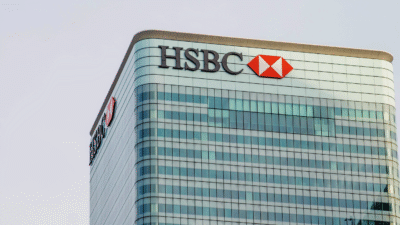
Sign up for smart news, insights, and analysis on the biggest financial stories of the day.
Credit TPG, the private equity giant, for following the money.
On Monday, the Texas-based firm known for leveraged buyouts and growth capital made a big splash into the exploding world of private credit by completing a $2.7 billion acquisition of Angelo Gordon. Like most major peers in the private equity space, it appears TPG is eyeing private credit as the next great frontier to fatten that all-important assets under management (AUM) figure.
Give ‘Em Credit
There’s plenty of reason private equity groups are so thirsty to break into the private credit market. Born in the void created by post-2008 regulations that tightened lending standards for banks, the sector has evolved into not just an alternative but also a competitor to banks. Where banks bring transparency and a consistent market price, private credit brings specialization and a stronger appetite for arranging and underwriting deals that banks may deem too risky. That dynamic has led the industry to balloon, with its AUM shooting up from around $500 billion in 2015 to $1.4 trillion at the end of last year. Research firm Preqin expects that number to grow to $2.3 trillion by 2027.
And private equity groups just can’t stay away. Tapping private credit as an asset class allows private equity groups to diversify their already-stuffed-to-the-brim portfolios with more fee-earning assets. Last summer, for example, Carlyle Group saw more fee-earning assets in its private credit business than its private equity business for the first time in company history.
Now, TPG looks to make the same bet:
- Currently, TPG has roughly $137 million in AUM, with its portfolio mostly stocked with growth-focused corporate buyouts as well as investments in climate and sustainability ventures. Angelo Gordon, meanwhile, manages some $73 billion in assets and recently played a role in the bankruptcy proceedings at Envision Healthcare and cosmetics giant Revlon.
- Just $970 million of the $2.7 billion deal will be paid in cash, with the remainder to be paid in stock. TPG projects that adding the private credit business will increase its fee-based earnings by up to 10%.
The deal “underscores our continued focus on growing and scaling through diversification, while driving long-term value for our shareholders,” TPG CEO Jon Winkelried told the Financial Times.
Interesting Development: Given the ongoing banking crisis, another vacuum would seem to be opening for private lenders to fill. But not everyone’s so sure it’s a safe space to play in. In an interview with the FT earlier this week, Howard Marks, co-founder of Oaktree Capital, warned that the same high-interest rates crunching small regional banks could be more of a pain than a boon for the private credit market. “[Warren] Buffett says it’s only when the tide goes out that you discover who has been swimming naked,” Marks told the FT. “Did the managers make good credit decisions, ensuring an adequate margin of safety, or did they invest fast because they could accumulate more capital? We’ll see.”











